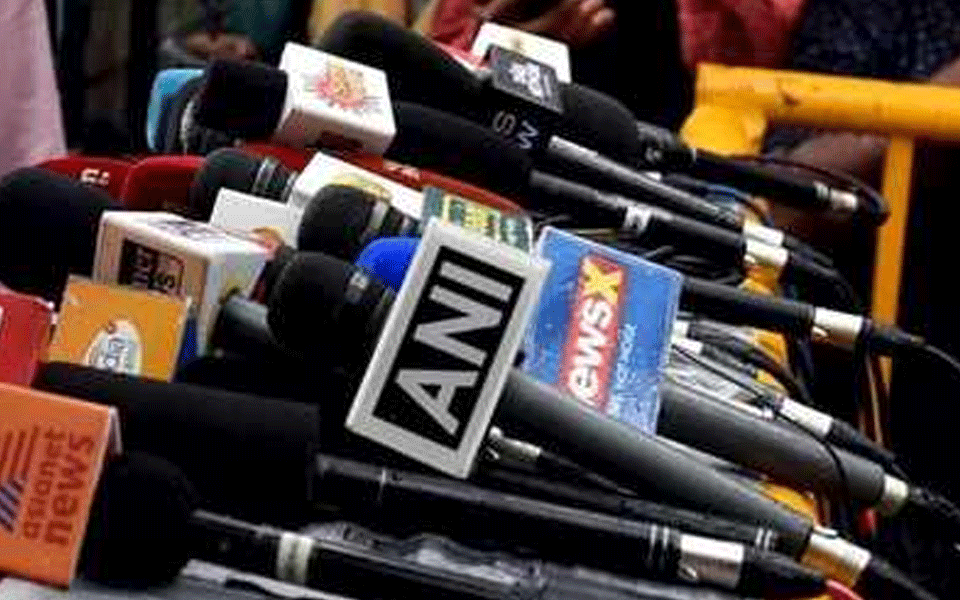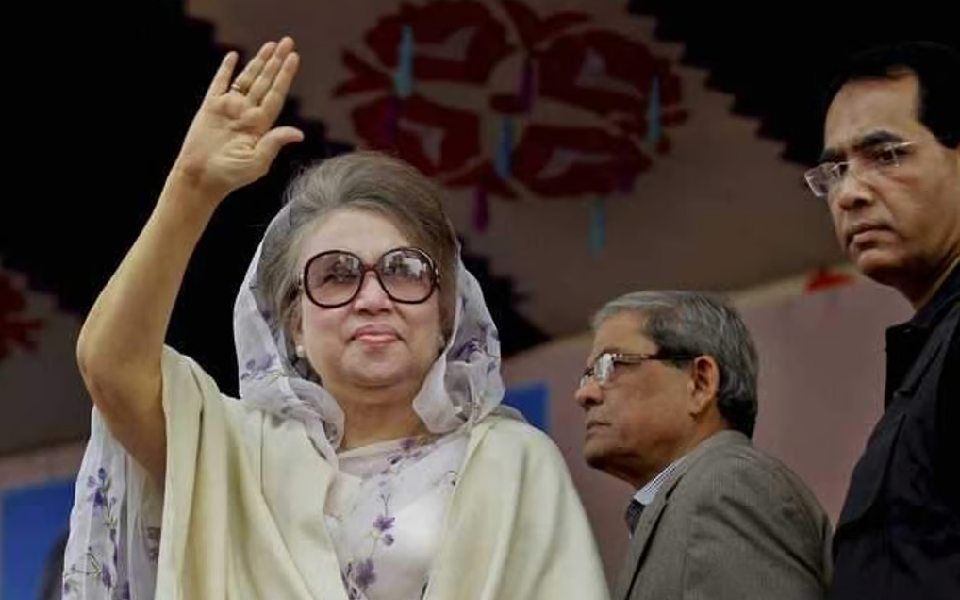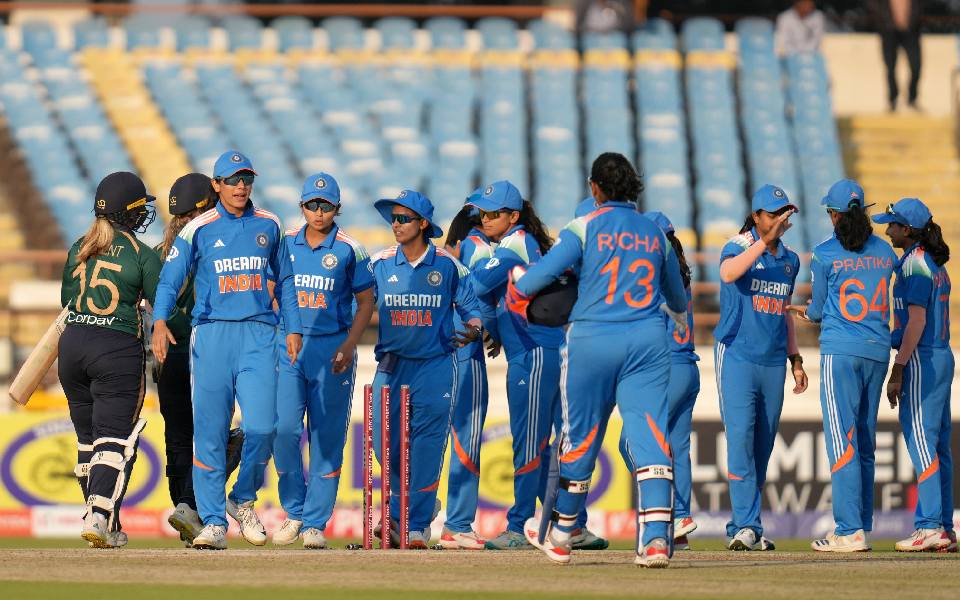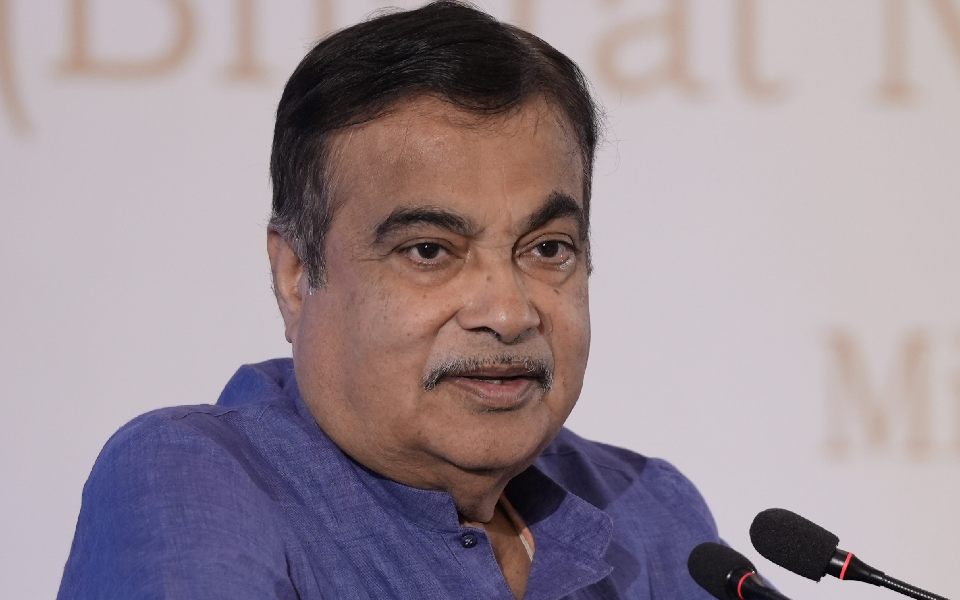New Delhi, Aug 08: The Editors Guild of India on August 8, decried “all attempts” by the government to “interfere” with the independence of the media, taking strong note of senior journalists of two TV channels quitting and frequent instances of broadcast signals being blocked of programmes seen to be critical of the ruling dispensation.
The Guild, an umbrella body of media organisations, in a statement, demanded suitable action against those responsible for “nefarious activities” aimed at “throttling” press freedom and urged media owners not to “cow down” to political pressure being put on them by the government or any other forces. It demanded that the government take note of the cases of disruptions in television programme signals, investigate and explain how and under what circumstances these “egregious violations” are taking place. It said such attempts strike at the root of media freedom and the foundations of India’s democracy.
“It (government) must also assure the nation that either directly or through any proxies or agencies it isn’t involved in this activity. And if it isn’t, these saboteurs must be brought to book. Freedom of airwaves cannot be tampered with,” said the Guild.
Pressure from the government
The strong statement comes days after the managing editor and two anchors of a prominent TV channel resigned. The Congress has alleged that they quit due to pressure from the government for airing stories critical of the Modi dispensation. It said the past few days have seen senior journalists of at least two electronic media channels come out in the open to assert that their employers attempted to either “tailor” or “tone down” content to make it less critical of the government, leaving them with no choice but to resign. The Guild said at least one such instance was reported formally in writing to it.
“The Editors Guild of India condemns the manner in which the right to practise free and independent journalism is seen to be undermined by a combination of forces — some media owners’ inability to withstand covert or overt pressures from the political establishment and frequent instances of blocking or interference in the transmission of television content that is seen to be critical of the government,” it said.
Disruption of TV signals
The Guild said one TV channel has also shared with it screen-shots and details indicating such interference. “Even more worrying are the recent instances where signals of television programmes critical of the government have seemingly been blocked or disrupted in a manner almost Orwellian,” it said. “These undermine the right to be informed and to hold the establishment accountable. This seems a brazen attempt to punish ‘unfriendly’ news channels and silence inconvenient voices.”
The Guild asserted that freedom of airwaves cannot be tampered with and decried the tendency on the part of the government, and the political class in general, to use “selective denial of journalistic access” as a weapon.
“This has become worse when there are few opportunities to ask questions to those in public life or in official positions on public platforms like press conferences, which is a legitimate democratic right of journalists on behalf of all citizens. Denying this right and shunning journalists critical of you are unhealthy practices in a democracy. Unfortunately, it can also lead to one-sided coverage. This unhealthy and unfair practice must be avoided,” the Guild said.
It also reminded media owners that institutional strength and respect is directly linked to editorial independence and undermining the former can result in curtailing the latter.
“Owners and journalists have an equally shared interest in press freedoms and in resisting pressures,” the Guild said. On a related issue, the Guild decried the “cease and desist” notice served by a large corporate group on some newspapersin an effort to block the coverage of an important defence deal. “The company should withdraw this notice. And if it doesn’t, it should be resisted. If needed, we hope the courts will weigh in for the right of journalists to investigate and raise questions,” it said.
Courtesy: www.thehindu.com
Let the Truth be known. If you read VB and like VB, please be a VB Supporter and Help us deliver the Truth to one and all.
Dhaka, Jan 15: Bangladesh Supreme Court on Wednesday acquitted former prime minister and BNP Chairperson Khaleda Zia in a corruption case, overturning the High Court’s earlier 10-year prison sentence.
The verdict was delivered by a bench led by Chief Justice Dr Syed Refaat Ahmed after reviewing 79-year-old Zia’s appeal against the High Court’s ruling on Wednesday, the Dhaka Tribune reported.
The Supreme Court acquitted Zia, the party’s Acting Chairman Tarique Rahman, and all other suspects in their appeal over the Zia Orphanage Trust graft case, the report added.
The Appellate Division noted that the case was motivated by revenge.
Zia was sentenced on February 8, 2018, by Dhaka’s Special Judge Court-5 to five years of imprisonment for alleged embezzlement of government funds in the name of the Zia Orphanage Trust.
The same verdict handed down 10 years of rigorous imprisonment for five other accused, including Zia's son Tarique and former chief secretary Kamal Uddin Siddiqui. Each of the accused was also fined Tk2.1 crore.
Among the accused, Tarique, Siddiqui, and Ziaur Rahman’s nephew Mominur Rahman have remained absconding.
Zia appealed the trial court’s verdict to the High Court, but the sentence was increased to 10 years by a High Court bench comprising Justice M Enayetur Rahim and Justice Md Mostafizur Rahman on October 30, 2018.
Zia subsequently filed a leave-to-appeal petition against this sentence.
Following years of delays due to legal procedural issues and a lack of initiative from lawyers, the Appellate Division accepted Zia’s leave-to-appeal on November 11, 2024.
The court also stayed the High Court’s 10-year sentence pending the final hearing of the appeal.
After concluding the hearing, the Appellate Division announced its decision to acquit Zia, officially clearing her of the charges in the case.
Zia is ailing and travelled to London earlier this month for medical treatment.
Zia served as the prime minister of Bangladesh from March 1991 to March 1996, and again from June 2001 to October 2006.





